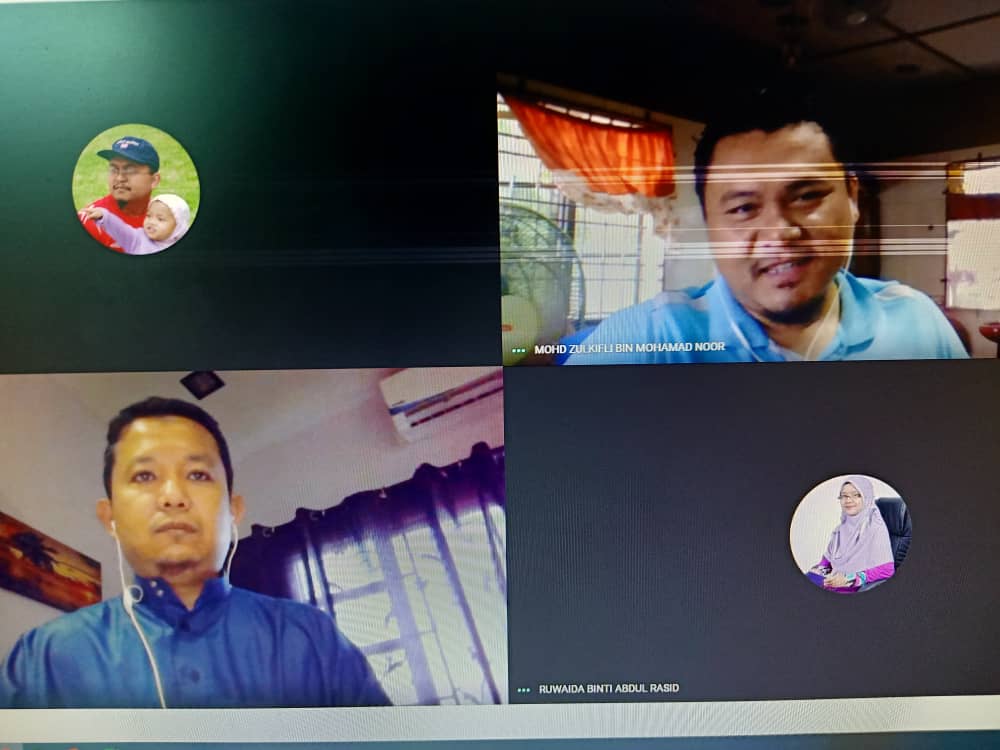UMP Implements Work From Home Policy

Kuantan, 25 March – The Movement Control Order (MCO) directive following the country’s stand against the COVID-19 pandemic provided an extraordinary experience for Universiti Malaysia Pahang (UMP) associates who implemented a Work From Home policy since 18 March.
The Deputy Dean (Academic & Student Affairs), Faculty of Chemical & Process Engineering Technology, Dr. Rozaimi Abu Samah said, from a particular perspective, working from home provided more flexibility to the staff. The time taken preparing to go to the office was saved.
For example, his journey to the workplace takes 30 minutes one way. Appropriate attire only needs to be worn during a video call. However, in his opinion, it also has its challenges, such as the discipline required to remain prepared to deal with others.
He said this challenge can disturb productivity and work quality if not well-managed. At the same time, lack of office facilities may interrupt the momentum of the work, especially computer and internet connectivity issues.
“As for the academic staff, the main challenge is learning assessment. Lecturers must be creative to come up with the most suitable method to evaluate students online and without physical presence such as written tests taken in the lecture halls,” he said.
Besides that, teaching and learning sessions might also be interrupted seeing that certain facilities are more easily accessible from inside UMP itself compared to outside of the campus. However, it is not an obstacle for lecturers using their expertise and technology in ensuring that teaching and learning can be carried out in the best possible way. Apart from matters concerning teaching and learning, internet access for the students should be prioritised.
Meanwhile, the Head of Programme (Project Management) of the Faculty of Industrial Management (FIM), Dr. Nurhaizan Mohd Zainudin, welcomed the implementation of working from home as an effort to reduce the risk of COVID-19 infection.
However, Dr. Nurhaizan stated that concentration and productivity are essential while this policy is in place. She added that while working from home, the chance of confidential and personal information leaking is higher. As a result, awareness of ethics for working from home must be improved.
Meanwhile, for the Assistant Registrar in the Management Service Division, Registry Department, Nor Fadzillah Zulkipli said, working from home for extended periods is something new to her.
Even while at home, she was still able to complete tasks given by her superior with no pressure and in a more conducive environment. However, facing interruptions, especially when it comes to children while at home had its own challenge. It can be overcome with the help and cooperation from the spouse or other family members.
In ensuring that tasks are completed well, a special broadband network for tasks that require the staff to access the system is beneficial, especially in certain living areas that do not receive sufficient broadband coverage.
The Head of Programme (Master of Business Administration), Dr. Suhaidah Hussain also shared her experiences carrying out classes online before students began their semester break recently. It really helped lecturers and students to continue their education virtually. Besides that, for tutorial classes, forums between students and lecturers were also carried out via KALAM.
All public service officers were ordered to work from home following the MCO directive starting from 18 March until the new end date, 14 April 2020 for the entire country to stop the spread of the COVID-19 pandemic in the country as recently announced by the Prime Minister, Tan Sri Muhyiddin. The directive also applied to private sectors except for those related to essential services such as water, electricity, energy, telecommunication, postal services, transportation, oil, gas, and fuel.


